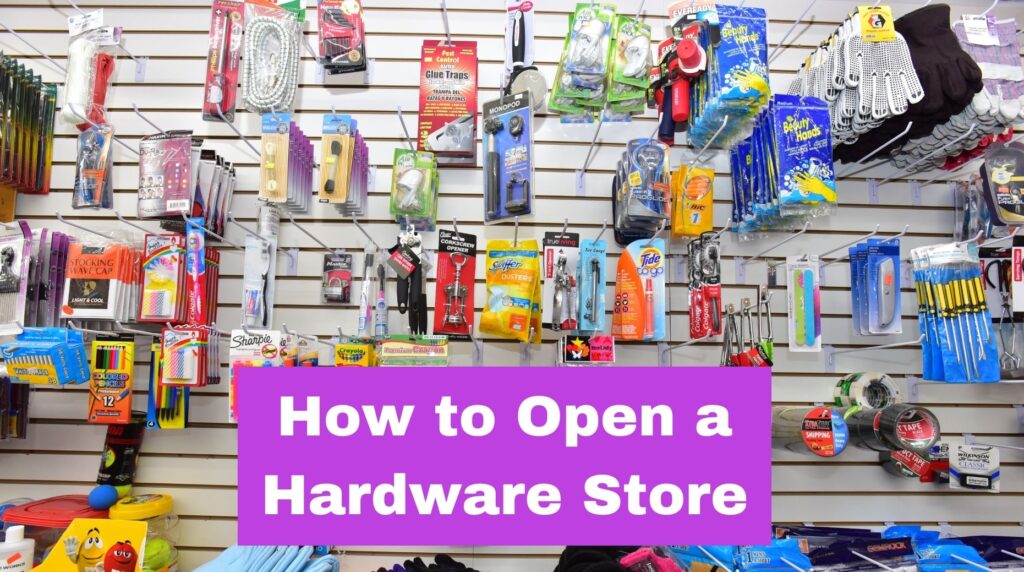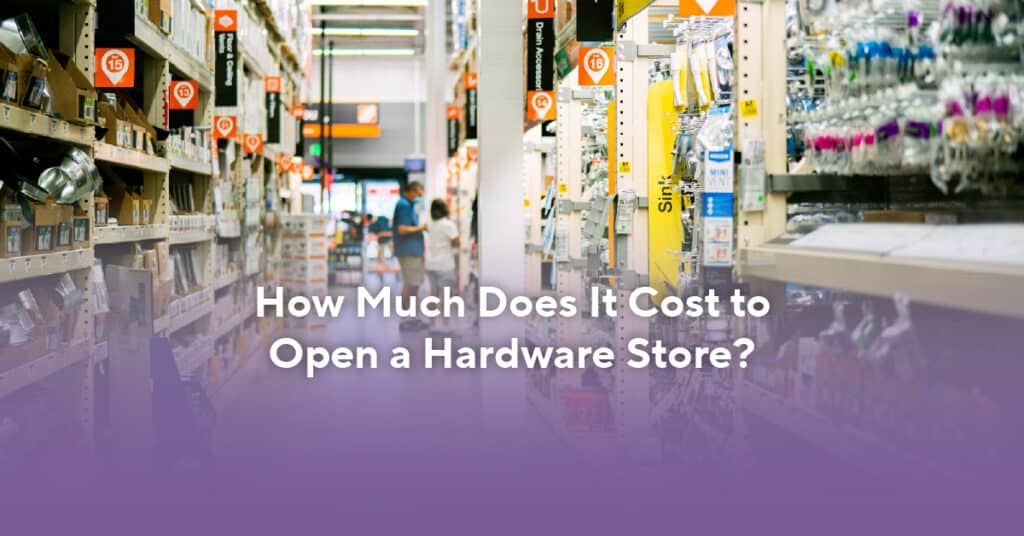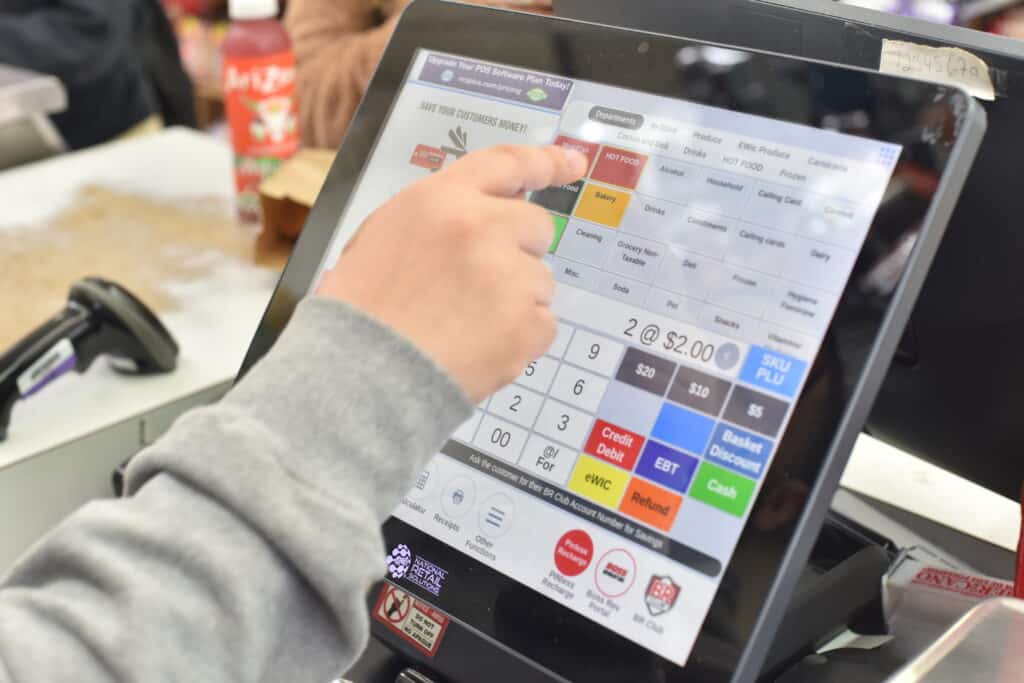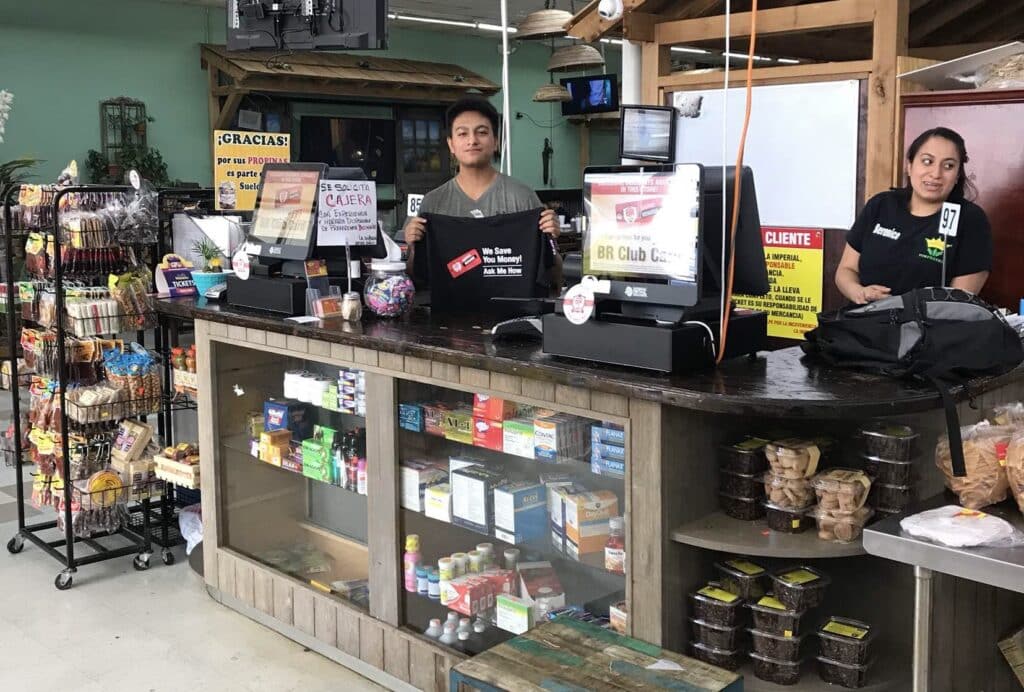What You Need to Know About Starting a Hardware Store
Starting a hardware store is a practical business decision that meets consistent demand from homeowners, DIY enthusiasts, and professional contractors.
Hardware stores play a critical role in communities, supplying tools, building materials, and other essentials for projects of all sizes.
Understanding how to open a hardware store begins with market research and a detailed business plan. Establishing clear goals, identifying customer needs, and planning for growth are essential.
Starting a hardware store also involves preparing for key challenges, such as selecting a location, sourcing inventory, and setting up efficient systems.
Each decision contributes to creating a strong foundation for long-term success.
| Key Aspect | Description |
| Market Research | Understand local demand, customer demographics, and competition to identify opportunities. |
| Business Planning | Define clear goals, target audience, and financial projections for a strong foundation. |
| Location Selection | Choose a high-traffic location with ample parking and proximity to your target audience. |
| Inventory and Equipment | Source quality products and essential equipment to meet customer needs efficiently. |
| Operational Systems | Implement a reliable POS system and other tools to streamline operations and customer service. |
Initial Business Planning and Market Research
Laying a solid foundation for your hardware store begins with thorough business planning and market research.
These steps ensure you have a clear direction and an understanding of the market dynamics, setting your store up for long-term success.
Building the Blueprint: Business Planning Essentials
- Define your vision and mission to guide your business decisions.
- Identify your target customers, including homeowners, contractors, and DIY enthusiasts.
- Prepare detailed financial projections to understand expected costs, revenue, and profitability.
Knowing Your Market: Research That Sets You Apart
- Evaluate local competition to identify gaps or opportunities in the market.
- Study customer demographics to understand their needs and preferences.
- Highlight unique selling points that differentiate your store from competitors.
Crunching the Numbers: Budgeting for Success
- Budget for critical expenses, including store space, initial inventory, and equipment.
- Account for ongoing costs like utilities, employee salaries, and marketing.
- Plan for a reliable POS system to streamline inventory management, sales tracking, and customer transactions.
Spotlight on Success: Choosing the Perfect Location
Selecting the right location for your hardware store is a critical decision that can significantly impact your business.
A well-placed store attracts more customers, ensures convenience, and supports long-term growth.
Visibility Matters: Finding a High-Traffic Spot
Choosing a location with high foot traffic ensures your store stays visible to potential customers.
Look for areas that naturally draw people in, such as shopping centers or busy streets, and prioritize locations with ample parking to make visits easy and hassle-free.
- Opt for high-visibility spots to attract more walk-in customers.
- Ensure sufficient parking for customer convenience.
Competition or Opportunity? Picking the Right Neighborhood
Proximity to competitors can either be a challenge or an opportunity.
Positioning your store nearby in areas with established demand could attract customers looking for variety.
Alternatively, underserved neighborhoods can provide the chance to stand out as the go-to hardware store.
- Evaluate the competition in potential locations.
- Consider underserved areas to meet unfulfilled demand.
Rent or Buy? Deciding What’s Best for Your Storefront
Deciding whether to lease or purchase a storefront depends on your long-term goals and budget.
Renting offers flexibility and lower upfront costs, while buying can be a strategic investment if you plan to establish roots and build equity over time.
Comparison of Leasing vs. Purchasing a Storefront
| Factor | Leasing | Purchasing |
|---|---|---|
| Upfront Costs | Lower initial costs typically limited to a security deposit and the first month’s rent. | High initial costs, including down payments, closing costs, and potential renovation expenses. |
| Flexibility | Offers greater flexibility to relocate or expand without long-term commitment. | Limited flexibility: selling or relocating can be time-consuming and costly. |
| Control Over Property | Minimal control; landlords may impose restrictions or increase rent. | Full control over renovations, layout, and long-term modifications. |
| Long-Term Costs | Can become expensive over time as rents increase annually. | Fixed mortgage payments can be more predictable and cost-effective in the long run. |
| Investment Potential | No equity is built; monthly payments benefit the landlord. | Builds equity over time; the property can appreciate in value, offering potential for resale gains. |
| Maintenance | Often the landlord’s responsibility, reducing the burden on the tenant. | The owner is responsible for all maintenance and repair costs. |
| Tax Benefits | Limited tax benefits, such as deducting rent as a business expense. | Potential tax benefits, including depreciation and interest deductions. |
Setting Up the Legal Framework for Your Hardware Store
Navigating the legal requirements for your hardware store is essential to ensure smooth operations and compliance with local regulations.
Taking care of these details early sets a strong foundation for your business.
Choosing the Right Business Structure
Selecting the appropriate business structure impacts your taxes, liability, and overall operations.
Options include forming an LLC for limited liability, operating as a sole proprietorship for simplicity, or creating a corporation for more formal structure and growth potential.
- Evaluate the pros and cons of LLCs, sole proprietorships, and corporations.
- Consult a legal or tax advisor to determine the best structure for your business.
Securing Permits and Licenses
Your store will need specific permits and licenses to operate legally.
These may include zoning permits, a seller’s permit to collect sales tax, and a general business license based on your location.
- Research local requirements for permits and licenses.
- Apply for zoning approval and a seller’s permit before opening.
Protecting Your Business with Insurance
Insurance safeguards your store from financial risks.
General liability insurance covers accidents, workers’ compensation protects employees, and additional policies can address property damage or theft.
- Obtain general liability insurance to cover customer incidents.
- Secure workers’ compensation if you plan to hire staff.
- Consider property insurance to protect against damage or loss.
Stocking Up Smartly: Sourcing Inventory and Equipment
A well-stocked hardware store is key to attracting customers and meeting their needs, but doing so on a budget requires strategy.
By carefully selecting products, building strong supplier relationships, and optimizing equipment purchases, you can set your store up for success without overspending.
Core Product Selection
Focus on products that cater to your target customers.
Essentials like tools, hardware, and building materials should take priority but don’t overlook seasonal items that can bring in extra revenue during specific times of the year.
- Stock everyday necessities like tools, nails, and screws.
- Include high-demand items such as paint, plumbing supplies, and electrical parts.
- Rotate seasonal items like gardening tools or snow shovels to keep your inventory fresh.
Building Supplier Relationships
Suppliers are more than vendors—they’re partners in your success.
Negotiating bulk discounts and fostering good relationships can help you maintain healthy profit margins while ensuring you’re always well-stocked.
- Research and compare multiple wholesalers for the best prices.
- Build long-term relationships to unlock better discounts and terms.
- Look for local suppliers to save on shipping costs and strengthen community ties.
Smart Choices for Equipment Needs
Invest in equipment that maximizes efficiency and enhances the shopping experience without breaking the bank.
Shelving, display units, and safety gear are essential, but you can also prioritize durable checkout hardware to keep transactions smooth.
- Choose affordable yet durable shelving and displays to organize products.
- Include safety gear like gloves and goggles for employees and customers.
- Opt for a reliable POS system that fits your budget and scales with your needs.
Additional Options for Budget-Friendly Inventory and Equipment
Exploring second-hand options and large sellouts can be a smart strategy for entrepreneurs looking to save on startup costs.
Here are some places to consider:
Second-Hand Equipment and Fixtures
- Online Marketplaces: Websites like Craigslist, Facebook Marketplace, and eBay often have used shelving, display units, and even checkout counters at significantly reduced prices.
- Local Auctions: Look for business liquidation auctions, where hardware stores or other retailers may sell off inventory and equipment.
- Warehouse Sales: Industrial warehouses sometimes sell used fixtures and equipment directly to small businesses.
Discounted or Overstock Inventory
- Wholesaler Clearance Sales: Some wholesalers offer deep discounts on overstocked or discontinued items.
- Surplus Stores: Stores specializing in surplus inventory, such as Habitat for Humanity ReStores, may have hardware tools and materials at bargain prices.
- Closeout Retailers: Companies like Liquidation.com or B-Stock often have hardware and equipment from businesses closing down.
Local Connections and Community Opportunities
- Networking with Local Businesses: Reach out to other store owners with surplus inventory or equipment to sell.
- Community Boards: Check community notice boards or local social media groups for businesses offloading supplies.
- Government Auctions: Government-run auctions sometimes feature industrial tools and materials.
By thinking creatively and exploring these options, you can reduce costs while equipping your store with the essentials to succeed.
Selecting and Implementing a POS System
Key Features of an Ideal POS System for Hardware Stores
Modern store management relies on solutions that organize daily sales, maintain accurate product counts, and support customer satisfaction. An effective POS system should offer:
Inventory Management:
Real-time tracking that helps owners handle bulk items, specialty tools, and seasonal products.
Barcode Scanning:
Streamlined transactions at checkout, plus detailed data for reorder alerts.
Customer Tracking:
Retention programs and purchase histories that boost recurring business.
Secure Payment Processing:
Encryption features that protect against fraud and reduce errors.
Ease of Use and Scalability:
Simple operation for staff training and flexibility to accommodate future growth.
POS Options for Hardware Stores
Several platforms offer reliable service, but the NRS POS stands out for hardware retailers.
The heavy-duty hardware and user-friendly software address the varied inventory typically found on hardware store shelves.
The NRS POS integrates features designed to help owners who have studied how to open or start a hardware store.
The pricing structure, remote access, and optional add-ons fit the needs of stores at different stages.
Integrating POS with Accounting and Inventory
A robust POS integrates smoothly with platforms like QuickBooks for real-time financial updates.
This connection allows managers to review revenue and expenses from any device and promptly adjust budgets.
Automated inventory tracking also prevents overstock of slow-moving items and cuts the risk of running out of core essentials.
Synchronizing inventory data with the POS system keeps records consistent and helps those learning how to setup a hardware store maintain organized operations from day one.
Setting Up Store Layout and Checkout Efficiency
A well-organized layout makes shopping easier for both casual visitors and seasoned professionals.
Streamlined aisles, clear signs, and strategic checkout placement can increase efficiency while encouraging impulse purchases.
Aisle Planning
- Group tools, electrical items, and plumbing supplies in distinct areas to simplify navigation.
- Keep aisles wide to minimize congestion and enable quick movement.
- Place popular items near the entrance so shoppers can see them as soon as they enter.
Signage and Labeling
- Use large, clear labels to guide customers to specific product categories.
- Incorporate simple icons or color codes for easy recognition.
- Place safety signs around sharp tools or heavy equipment to reduce the risk of accidents.
Checkout Design
- Position the POS system where traffic naturally flows so lines move quickly.
- Offer impulse-buy or daily-use products near the register for added sales opportunities.
- Include nearby storage for frequently restocked items so staff can remain at the checkout area.
Hiring and Training Staff for POS and Customer Service
Staff members who understand hardware basics can explain product features in a way that feels helpful to customers.
A strong background in communication also makes it easier to handle phone inquiries, demonstrate tools, and maintain professionalism during busy shifts.
Regular training on the POS system promotes accuracy at checkout, while extra instruction on product knowledge keeps everyone informed.
Frequent feedback sessions create a supportive culture where staff build confidence, learn from each other, and deliver top-notch customer experiences.
Marketing and Promotion Strategies
Spreading the Word with Local Advertising
Distributing flyers in nearby neighborhoods and sponsoring community fundraisers can help spread the word about a new store.
Offering do-it-yourself demonstrations at local events may attract enthusiasts who prefer hands-on learning.
These efforts foster relationships that often encourage repeat business.
Building an Online Presence That Drives Traffic
Creating a website with clear navigation and updated product information offers convenience for shoppers who prefer researching products before visiting.
Social media pages give a platform for highlighting promotions, new arrivals, and tips on using specific tools.
Claiming and maintaining a complete Google Business listing helps people find the store when searching online.
Boosting Customer Retention with Loyalty Rewards
A consistent rewards system makes shoppers feel valued and motivates them to return.
NRS POS includes a built-in loyalty feature automatically tracking purchases and applying points to customers’ accounts.
Integrating this data with email or text marketing helps owners remind frequent buyers about specials or restocked items.
This approach keeps the store fresh in customers’ minds and promotes word-of-mouth referrals.
Engaging with Local Partners and Shoppers Alike
Cultivating a close connection with the neighborhood leads to steady support and trust.
Engaging with locals, offering valuable programs, and responding to feedback shows that a store values people as more than just paying customers.
- Host workshops or DIY classes with local experts.
- Encourage and respond to online reviews (Yelp, Google).
- Contribute to community efforts, such as school fundraisers or neighborhood projects.
Optimizing Store Operations with POS Analytics
Fine-tuning inventory with Sales and Analytics
Using POS analytics helps streamline inventory decisions and maximize profitability.
You can track seasonal trends and adjust your stock with detailed sales reports.
- Identify top-selling items to ensure they are always available.
- Spot slow-moving products to reduce overstock and free up shelf space.
- Leverage NRS POS’s automated reports for real-time insights on product performance.
Unlocking Customer Insights for Smarter Marketing
Understanding your customers’ purchasing habits is essential for targeted marketing. NRS POS makes this simple by tracking customer behavior and integrating it with loyalty programs.
- Monitor purchasing patterns to create personalized promotions.
- Use NRS Loyalty program to reward repeat customers and encourage loyalty.
- Refine marketing efforts based on data-driven insights.
Upgrading Your POS for Modern Retail Demands
Keeping your POS system up to date ensures your business stays competitive and ready for growth.
NRS POS supports advanced features to meet modern retail demands.
- Accept mobile wallets, contactless payments, and other modern payment methods.
- Consider self-checkout options for a streamlined shopping experience.
- Integrate eCommerce features to expand your reach and future-proof your operations.
How Much Does It Cost to Open a Hardware Store? (Budget Breakdown)
Opening a hardware store in a moderately to highly populated area in the US involves significant financial considerations.
Costs vary based on location, inventory, and whether it’s a franchise or independent store.
Initial investment for a franchise like Ace Hardware can range from $280,000 to $2,000,000, including franchise fees, initial inventory, and store setup.
Independent stores avoid franchise fees but require more marketing to establish a brand.
Ongoing costs include rent, employee salaries, utilities, and marketing, with higher expenses expected in populated areas due to increased competition and demand.
| Cost Category | Estimated Range (USD) | Notes |
| Initial Investment (Franchise) | $280,000 – $2,000,000 | Includes franchise fees, inventory, and setup costs. |
| Initial Investment (Independent) | Varies | It is lower than a franchise but requires more marketing. |
| Rent | $1,500 – $10,000/month | Higher in populated areas due to competition. |
| Employee Salaries | $30,000 – $150,000/year | Higher wages are typical in urban areas. |
| Utilities | $500 – $2,000/month | It can vary significantly across different states. |
| Marketing and Advertising | $500 – $5,000/month | More extensive strategies may be needed in populated areas. |
Conclusion
Opening a hardware store requires careful planning, wise investments, and the tools to manage operations effectively.
From organizing your store layout to building strong customer relationships, every step plays a role in your success.
Leveraging a robust POS system like NRS POS simplifies daily tasks, enhances customer service, and provides the insights needed to make informed decisions.
Your store can thrive by combining strategic efforts with advanced technology.
Simplify Operations with NRS POS and NRS Pay
Don’t let outdated tools hold your hardware store back. The NRS POS system offers everything you need to manage inventory, streamline checkout, and understand your customers better.
With features tailored to independent retailers and the flexibility to grow with your business, NRS POS is a reliable solution you can trust.
Pair it with NRS Pay for seamless payment processing, featuring a free card reader, ZERO hidden fees, no long-term commitment, and no early termination fees.
Start your journey toward a successful store—learn more about how NRS POS and NRS Pay can power your operations today!








